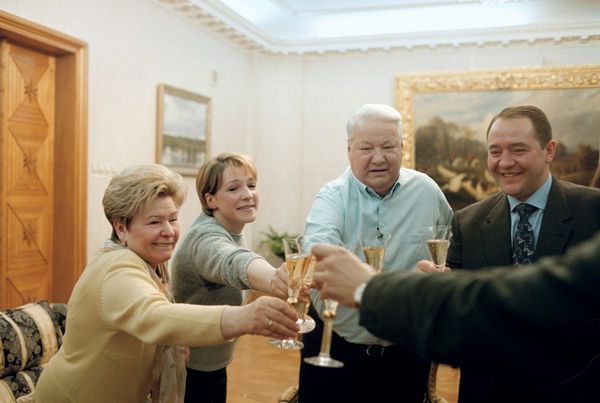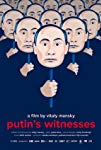Eye For Film >> Movies >> Putin's Witnesses (2018) Film Review
Putin's Witnesses
Reviewed by: Amber Wilkinson

The most accurate vision of all is 20/20 hindsight - something that we perhaps forget when watching documentaries shot in the heat of the moment. Vitaly Mansky would surely agree, as he returns to footage he recorded in the late Nineties in this scathing assessment of Vladimir Putin's Russian premiership. Back then, as a national TV documentarian, he was given what now seems unthinkable access to Putin, as the current president is filmed 'backstage' at the Kremlin and in a series of one-and-ones as he rose to power in the wake of Boris Yeltsin's resignation on New Year's Eve 1999 - a watershed moment that begins the film.
Mansky, who is understandably living in self-imposed exile in Latvia these days, makes sure we view this as a very personal document by including footage of himself and his family from the period. "We'll think we had lived in Utopia," his wife says in a portent - matched by sinister scoring from Karlis Auzans - of what is to come. Moving into the political sphere, Mansky presents footage of Putin, along with film of Yeltsin in his post-premier moment.

Taken at face value, Putin appears to be self-deprecating but as Mansky notes in his increasingly acidic narration, this was merely a mask behind which the Machiavellian gears were working at full tilt, the presidential candidate's "non-electioneering" insistence deliberately cultivated to the point where it, of course, became extreme electioneering. As the film progresses we come to see, from the point of our current knowledge, the master manipulator at work, even if, as with a staged and stilted reunion with a teacher, emotion rarely seems to cross his mind or face.
As with Mansky's previous documentary on the totalitarian regime in North Korea, Under The Sun, portions of this are not the bits that were specifically intended for the camera, but the more unguarded moments at either side. This is particularly effective when considering the increasingly estranged Yeltsin, left with his phone calls unreturned and just the trace of a head shake as he describes Putin's decision to reinstate the old national anthem as "reddish".
Most chilling perhaps is a scene showing Putin's backroom staff celebrating their boss's initial election win, with Mansky offering a potted history and roll call outlining the less than auspicious fates of many. There is a lot going on in this documentary and though it may be tricky for audiences less familiar with Russian politics to keep up with who's who, Mansky's bigger picture about the manipulation of a nation is crystal clear. It is also a reminder that for all the jokes about Putin, he is no idiot and knows exactly how to cultivate populist ideas such as "nostalgia" - as evidenced by the anthem - to fuel his own ends. Manksy also highlights the way that things that seemed innocuous at the time, such as a TV news story in the back of some footage, have taken on greater significance with age. This last element also allows the filmmaker room to scrutinise his own role, and by extension, that of other everyday Russians, in building Putin's empire.
Towards the end of the film - which won the documentary Crystal Globe at Karlovy Film Festival - Putin tells Mansky: "The day will come when I'll be able to return to normal life". Knowing what we know now, you can easily imagine the president's unspoken addendum being, "But not if I can help it".
Reviewed on: 23 Jul 2018















